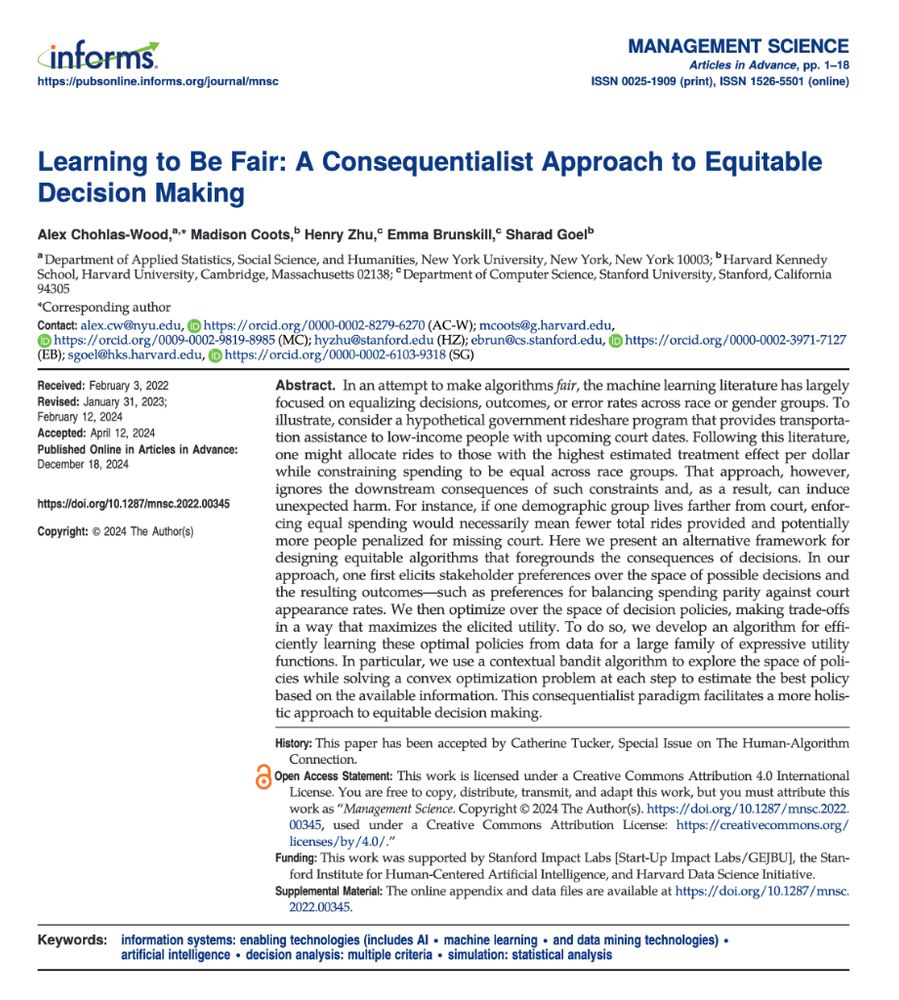Alex Chohlas-Wood
@alexchohlaswood.com
580 followers
710 following
53 posts
Assistant professor at NYU interested in computational public policy and the criminal justice system. Co-direct @comppolicylab.bsky.social.📍NYC 🏳️🌈 alexchohlaswood.com
Posts
Media
Videos
Starter Packs
Pinned
Alex Chohlas-Wood
@alexchohlaswood.com
· Jul 21
Seven Months In, Race-Blind Charging Faces Test In Calif. - Law360
In January, California adopted race-blind charging as a statewide policy, after a law passed in 2022 went into effect. Now, seven months into the program's statewide rollout, race-blind charging is sh...
www.law360.com
Alex Chohlas-Wood
@alexchohlaswood.com
· Feb 14
Reposted by Alex Chohlas-Wood
Hannah Li
@hannahli.bsky.social
· Jan 9










